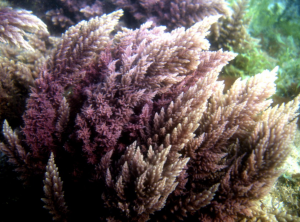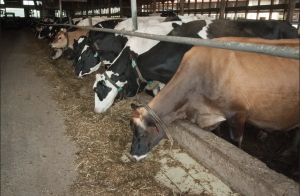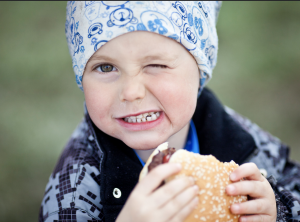Apparently, seaweed is not just healthy for people, but when given to cows it will be good for the planet. The large amounts of greenhouse gases released into the atmosphere are driving global warming. A significant amount of these emissions are a result of cows belching and flatulating in the amount of around 142.5 million metric tons of methane per year.
Beef and dairy are common sources of nutrition for people all over the world. In Canada alone, the average person eats around 40 lb of beef and drinks 66 L of milk per year. The issue is growing cattle is notorious for its harmful environmental impact due to the methane gas the animals release. Although methane is only 16% of the total human-caused greenhouse emissions, it is much more potent than carbon dioxide (which makes up 76% of the greenhouse gases released), making it an important agent we need to manage. The ecologically harmful process, of producing and emitting methane by cows, is described in the video below created by Laura Beil and Erin Otwell at Science News.
Video Source: Science News | YouTube
It turns out that adjusting cattle feed can greatly reduce the amount of methane they create. A recent study headed by Dr. Ermias Kebreab and his team found that adding a certain type of red seaweed (scientifically known as Asparagopsis taxiformis) to cows’ diet could play an important role in reducing greenhouse emissions. The researchers observed that the more seaweed in the diet the less methane the cows released. In addition, the study tested how different forage (grass and hay) to concentrate (corn and molasses) ratios, in combination with the seaweed, decreased cow methane production. The best results were noted when their diet had lower forage levels (compared to concentrate) and greater amounts of seaweed. This feed combination was measured to reduce beef methane emissions by more than 80%!

The type of red seaweed fed to the cows: Asparagopsis taxiformis: Source: flickr.com/Guilherme Fluckiger
It is worth noting that adding seaweed to the cows’ diet did not change their meat quality. A tasting panel confirmed that steaks were equally delicious regardless of what the cows ate in the study.
Adding seaweed to cow feed is a simple, low-cost, and nature-based solution to a very serious problem. The ability to reduce the amount of methane cows release is great news for the many people who rely on dairy and beef in their diet.
– Adam Soliman



6 responses to “The Power of Seaweed: How a Small Snack for Cows can have a Big Impact on the Planet”